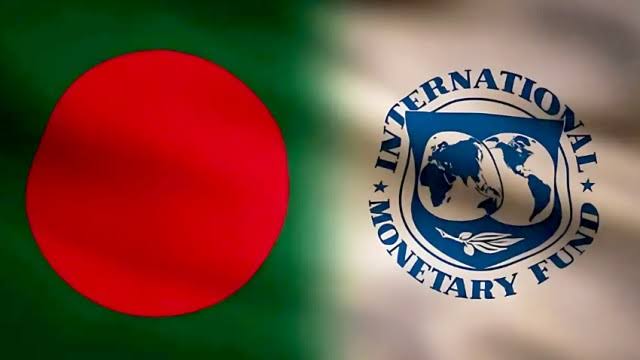Staff Correspondent
Published:2025-06-01 20:13:20 BdST
This year’s budget based on IMF formula
The upcoming budget prioritizes inflation control, employment, and investment, focusing on crisis management and structural reforms. To reduce the deficit, the overall size of the budget is being scaled down.
The International Monetary Fund (IMF) has long been pressuring for a reduced budget deficit and subsidies, along with comprehensive reforms in infrastructure, banking, capital markets, and the broader financial sector.
The IMF has also recommended splitting the National Board of Revenue (NBR) to improve revenue collection and reduce irregularities and corruption.
As per IMF requirements, a new method for calculating foreign exchange reserves has been introduced, and the cap on the exchange rate has been removed to implement a crawling peg system. Failure to comply with these conditions risked the suspension of the ongoing $4.7 billion loan program.
The interim government, continuing from the previous Awami League administration, is maintaining these IMF-led reforms to ease pressure on foreign reserves. Many other reform measures are also ongoing and are expected to be fully reflected in the 2025–26 fiscal budget, though their effects have already begun appearing in the current budget. Compared to the 2024–25 budget, the upcoming 2025–26 budget is being reduced by Tk 70,000 crore, setting the total at Tk 7,89,998 crore. This is the first time since Bangladesh’s independence in 1971 that a national budget will be smaller than the previous year’s. The current budget stood at Tk 7,97,000 crore, according to Finance Division sources.
A source within the Finance Division revealed that tariffs on 135 products will be reduced in the upcoming budget, lowering their market prices. However, following IMF advice, tax exemptions for 31 industries will be withdrawn, and income from IT businesses will be brought under the tax net. Moreover, individuals injured during the public uprising of 2024—who are officially gazetted—may receive special tax benefits, similar to those given to 1971 freedom fighters.
The interim government is preparing to announce the budget at a unique time. With Parliament inactive, Economic Advisor Dr. Salehuddin Ahmed will present the budget directly to the nation via Bangladesh Television (BTV). The focus of the budget will be on controlling inflation rather than targeting high GDP growth, with plans to increase employment and investment.
The NBR is already under significant pressure, and protests have been ongoing since an ordinance was issued to dissolve the board and create two new departments. This complex scenario sets the stage for the new fiscal year starting July 1.
According to NBR sources, the tax-free income threshold for general individuals will be raised from Tk 3.5 lakh to Tk 3.75 lakh, and for freedom fighters, from Tk 5 lakh to Tk 5.25 lakh. A similar exemption will also be offered to the so-called "July warriors" (those involved in the 2024 uprising). These thresholds will apply to income for the fiscal years 2026–27 and 2027–28, meaning income earned between July 1, 2026, and June 30, 2027, will follow the new rates.
In compliance with the IMF loan program, NBR officials have indicated major changes to the tax and tariff structure aimed at increasing revenue. This may result in increased tax burdens in some sectors and relief in others.
In addition, the Election Commission has requested a Tk 5,921.73 crore allocation in the 2025–26 budget to hold about 2,500 elections, including general and by-elections at city corporation, upazila, district, municipality, and union levels. In comparison, Tk 2,406 crore was allocated for the 2024 general elections, but the revised budget increased that to Tk 4,769 crore to meet actual expenses.
Despite the overall smaller budget size, allocations for interest payments and public servant salaries are increasing by about 11% to Tk 2,19,000 crore, which is approximately 28% of the total budget. Interest payments are followed by government salaries as a major expenditure. The current allocation for public sector salaries is Tk 82,990 crore (10.41% of the total budget), but this will be increased by 16% to nearly Tk 97,000 crore in the new budget.
This hike is primarily due to the government’s plan to introduce a 15% dearness allowance for employees in grades 1–9 and a 20% allowance for those in grades 10–20. This benefit may take effect from July 1, costing the government an additional Tk 7,000 crore.
Unauthorized use or reproduction of The Finance Today content for commercial purposes is strictly prohibited.


